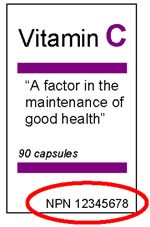Multivitamins: What You Need to Know
Multivitamins are often marketed as essential for health, but a well-balanced diet is typically the best way to meet your nutritional needs. Whole foods provide vitamins, minerals, fiber, antioxidants, and other beneficial compounds that supplements can't replace. However, there are situations where a multivitamin may be helpful. Read on to learn more!
What Are Multivitamins?
Multivitamins are dietary supplements that combine essential vitamins and minerals, such as B vitamins, vitamin C, potassium, zinc, and magnesium. Some are labeled "complete" and aim to provide the recommended daily intake of essential nutrients, but formulations vary between brands. Keep in mind, multivitamins do not contain macronutrients like protein, carbs, or fats. While supplements can seem like an easy way to improve nutrition, they cannot replace the benefits of whole foods. If you don't have a deficiency, taking a multivitamin is usually unnecessary, and excess vitamins will simply be excreted by your body. In some cases, taking too much of certain vitamins can cause harm, like liver or kidney damage. Always check with your healthcare provider before starting a supplement.
Who Might Benefit from a Multivitamin?
You may benefit from a multivitamin if any of the following apply to you:
Diagnosed Nutrient Deficiency: If a healthcare provider has identified a specific deficiency, they may recommend a multivitamin or targeted supplements to help address it.
Dietary Restrictions: Those following specific diets (e.g., vegan, very low-calorie, or those with limited food variety) may benefit from supplementation.
Malabsorption: Medical conditions such as celiac disease, Crohn’s disease, or those who have had surgeries that alter the gastrointestinal system (e.g., bariatric surgery) often require supplementation.
Life Stages with Increased Nutrient Needs:
- Older Adults: As nutrient absorption can decline with age, older adults may require additional vitamins and minerals.
- Pregnancy and Pre-conception: Health Canada advises that all individuals who could become pregnant take a daily multivitamin containing 400 mcg (0.4 mg) of folic acid to reduce the risk of neural tube defects. Specific prenatal vitamins are available for this purpose—consult your healthcare provider for guidance.
There are some cases where multivitamins may not be appropriate or should be used with caution:
Individuals with certain medical conditions: Some conditions, such as kidney disease or hemochromatosis (excess iron storage), may require avoiding specific supplements.
Those taking medications with potential interactions: Some vitamins and minerals can interfere with medications (e.g. anticoagulants “blood thinners” and vitamin K or levothyroxine and calcium or iron).
Tips for Choosing a Multivitamin
If you are looking to start taking a multivitamin, keep these tips in mind:
- Choose an appropriate formulation: Select a multivitamin tailored to your age, sex, and dietary needs.
- Avoid excessive dosages: More is not necessarily better—adhere to recommended daily amounts to prevent potential toxicity.
- Check for unnecessary ingredients: Some products contain extra herbs or fillers with little evidence to support their use.
- Look for quality assurance: Health Canada requires all natural health products (including multivitamins) to have an NPN (Natural Product Number). If a product has a NPN the product has been assessed for safety, efficacy, and quality. Many companies also highlight third-party testing on their websites.

Examples of Complete Multivitamins
Here are some examples of complete multivitamins available in Canada:
- Bayer One A Day® Men
- Centrum® Forte Essentials
- Equate® Silver 50+ Multivitamin
- Jamieson® 100% Complete Multivitamin for Adults Max Strength
- Jamieson® 100% Complete Multivitamin for Women 50+
- Kirkland® Signature Women’s or Men’s 50+ Multivitamin
- Webber Naturals® Women’s Most Complete Multivitamin
If you think you may need a multivitamin, speak with a healthcare professional to determine whether it’s right for you. Remember, supplements should support—not replace—healthy eating habits! If you’re interested in learning more about this topic, chat with your Constant Health Dietitian!